2017 China Tax Law Forum and the 6th China Tax Lawyers and Tax Agents Forum
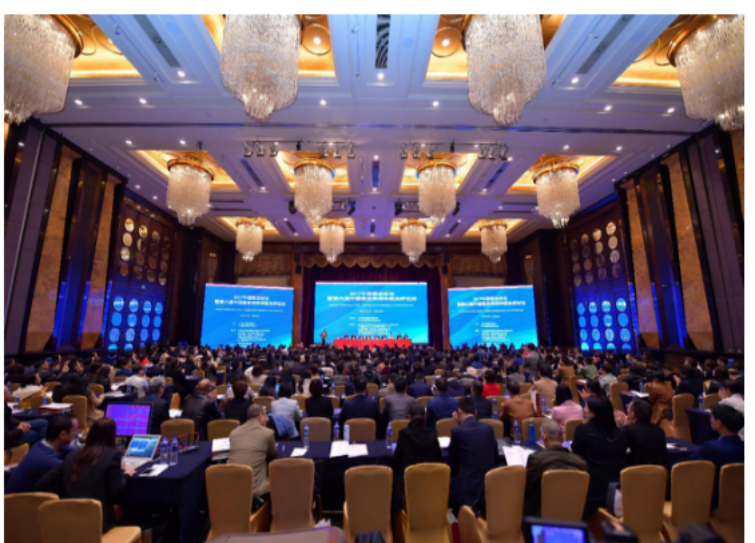
China Tax Law Forum 2017
On December 17, 2017, the "2017 China Tax Law Forum and the 6th China Tax Lawyers and Tax Accountants Forum" was held in Sheraton Shenzhen Hotel, with the theme of the forum as "Comprehensively Promoting the Rule of Law, Accelerating the Establishment of a Modern Fiscal System, and New Opportunities for Tax-Related Services in the New Era ". The forum was jointly organized by All China Lawyers' Association and China Association of Registered Taxation Technicians, and co-organized by All China Lawyers' Association Fiscal and Taxation Law Committee, China University of Political Science and Law Fiscal and Taxation Law Research Center, Beijing Hwuason (Shenzhen) Law Firm, Huatax Taxation Firm Ltd. and co-organized by Shenzhen Lawyers' Association and Shenzhen Association of Registered Taxation Technicians. More than 600 professionals from government agencies, industry associations, higher education institutions, enterprises, law firms, tax firms and other tax law theory and practice circles, as well as friends from the news media, attended the forum on site, and more than 23,000 people from all walks of life watched the conference live online.

Opening of the Forum
The opening ceremony of the forum was held at 9:00 a.m. on December 17, with Dr. Liu Tianyong, deputy director and secretary-general of the Professional Committee of Finance and Taxation Law of the All-China Lawyers Association, and director of Hwuason Law Firm, as the moderator. Li Linjun, Vice President and Secretary General of China Association of Registered Tax Practitioners, Ma Guohua, Deputy Secretary General of All China Lawyers Association, Liu Jianwen, President of China Association of Fiscal and Tax Law and Professor of Peking University Law School, and Shi Zhengwen, Director of China University of Political Science and Law Center of Fiscal and Tax Law attended the opening ceremony and delivered speeches one after another.
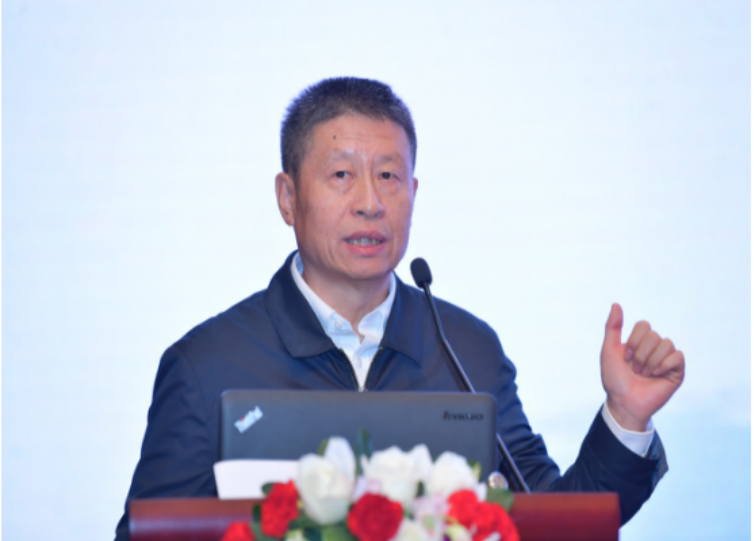
Speech by Vice President Li Linjun
Li Linjun, vice president of the forum, pointed out in his opening speech that the current Tax Law Forum is an important meeting held in the context of the new era, and the three major features of the new era proposed by General Secretary Xi Jinping, namely, "Quality Change, Efficiency Change, and Power Change", are all closely related to taxation. In the context of the new era, Mr. Wang Jun, Director General of the General Administration of Taxation, put forward the new goal of taking the lead in realizing the modernization of taxation in 2020, which mainly includes six systems, namely, the tax law system, the tax system, the service system, the levy and administration system, the information system, and the organization system; at the same time, the 19th National Congress Report mentioned that "we should give full play to the role of people of the new social strata in building socialism with Chinese characteristics", including the role of lawyers. At the same time, the report of the 19th National Congress mentioned that "we should give full play to the role of new social strata people in the construction of socialism with Chinese characteristics", including lawyers, tax accountants and accountants, who are all new social strata people, and they should strive for the realization of the goal of modernization of taxation, serve for the landing of the principle of tax law and work hard for the construction of a strong and healthy market of tax-related professional services, so that they can make new contributions to the cause of taxation.
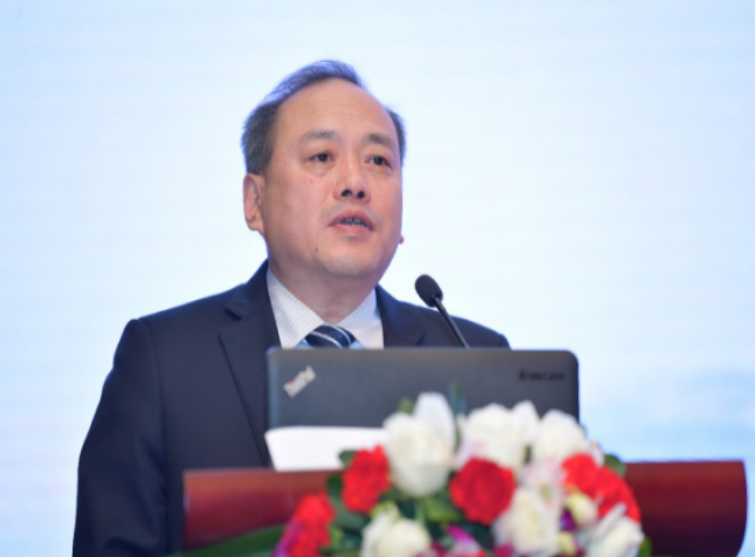
Statement by Under-Secretary-General Ma Guohua
Deputy Secretary-General Ma Guohua said in his speech that this Forum is the first time since it was held in 2010 that it has been held out of Beijing to Shenzhen, a city at the forefront of reform and opening up. The China Tax Law Forum has become an annual event for the theory and practice of tax law. The convening of this session of the China Tax Law Forum is attributed to the national efforts to implement the principle of tax law and deepen the reform of the fiscal and taxation system, as well as the unprecedentedly active market for tax law services, and is also closely related to the meticulous planning and selfless dedication of the forum's organizer, Beijing Hwuason Law Firm. He said, in a few weeks, we will usher in the 40th anniversary of the reform and opening up, in the context of the strategy of ruling the country according to law, the level of national rule of law has been comprehensively improved, and the lawyer profession has entered the fast lane of development, and an important manifestation is the rapid development of the specialization of lawyers, and the emerging specialist doctor-type professional lawyers have become a general trend. However, in the 340,000 lawyers, less than 800 lawyers specializing in tax, the development potential is huge. In recent years, the market demand for tax legal services has been expanding, and large law firms such as King & Wood Mallesons and Zhonglun Law Firm have set up professional tax departments, and specialized and boutique law firms such as Hwuason Law Firm have also achieved leapfrog development of their business. Deputy Secretary General Ma finally put forward the following four hopes for the future development of tax lawyers: firstly, to serve the national fiscal and tax legislation; secondly, to serve the judicial process of taxation; thirdly, to serve the benign development of the economy; and fourthly, to serve the legitimate rights and interests of taxpayers.
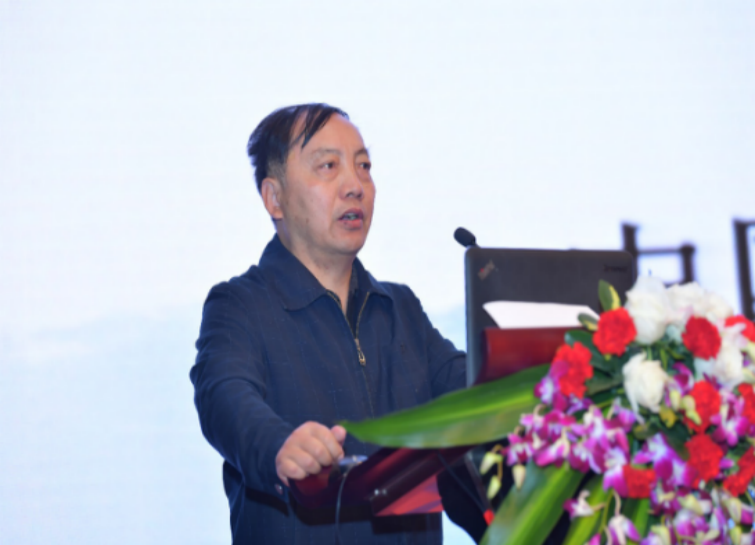
Speech by President Liu Jianwen
Prof. Liu Jianwen delivered a speech, first of all, on behalf of the China Law Society Taxation Law Research Association congratulated on the convening of this meeting, that the convening of this forum is just a response to the development of the new era of taxation law professional community, his speech includes four key words, the first key word is the rule of law, the 19th National Congress put forward to comprehensively promote the rule of law, that is to say, the scientific legislation, strict enforcement of the law, fair justice, all people abide by the law The second keyword is the fiscal system, the modern fiscal system should be a system centered on the protection of the legitimate rights and interests of taxpayers, because only by protecting the rights of taxpayers can we defuse the risks of the society, and realize the long-term stability of the country; the third keyword is the tax-related services, in order to improve the quality of the tax-related services, it is necessary to have an organic combination of theoretical and institutional research, and it is necessary to know how to respond to the reality of the society, and how to adhere to the problem-oriented, realize the theory to lead the society; the fourth key word is to establish a legal professional community. The fourth keyword is to establish a legal professional community, which should be composed of lawyers, tax accountants, judges, scholars and tax-related lawyers from administrative organs, and the community should work together to promote the construction of democratic politics and the rule of law in our country.

Speech by Director Shi Zhengwen
In his speech, Director Shi Zhengwen believes that the 19th National Congress Report pointed out that the people's need for a better life is becoming more and more extensive, not only putting forward higher demands for cultural life, but also increasing demands for democracy, the rule of law, fairness, justice, security and the environment. Taxation is naturally a category of "distribution", "public" and "democracy", and taxation is related to national economy and people's livelihood as well as democracy and the rule of law. The core feature of modern finance and taxation is the rule of law, and the rule of law is the only way to make finance play the role of foundation and pillar in national governance. Finance and taxation play a central role in solving our demand for fairness and justice, in promoting democracy and the rule of law, and in regulating the economy and protecting the ecological environment. Therefore, the theme of this year's forum is in line with the needs of the new era. Under such a theme, the new opportunities for tax-related professional services are inexhaustible, and the key is how to meet them and how to use them well. The All-China Lawyers Association and the China Association of Registered Taxation Technicians have carried out a series of strategic cooperation effectively over the years, and this forum is an important part of the cooperation between the two associations, which is very meaningful.

Opening Ceremony of Beijing Hwuason (Shenzhen) Law Firm
According to the agenda of the meeting, the last part of the opening ceremony was unveiled by Li Linjun, Vice President and Secretary General of China Association of Registered Tax Accountants, and Ma Guohua, Deputy Secretary General of All-China Lawyers' Association, to inaugurate Beijing Hwuason (Shenzhen) Law Firm. Liu Tianyong, the host of the opening ceremony of the forum and the director of Hwuason Law Firm, said that after the establishment of Beijing Hwuason (Shenzhen) Law Firm, it will give full play to the advantages of Huatax's professionalism and brand name, and uphold the development concept of win-win cooperation to promote the development of the tax-related legal service market with the lawyers, tax accountants, certified public accountants and other colleagues in the industry in South China, and to serve the construction of the local economy and the development of the society.
This year's forum includes five themes, namely: (1) deepening tax system reform and accelerating tax legislation; (2) revision of tax administration law and upgrading of tax-related services; (3) in-depth analysis of recent tax dispute cases and business enhancement; (4) innovation of tax-related services in the context of deepening supply-side reform; (5) "Belt and Road" strategy and innovation of international tax-related professional services. (v) Innovation of international tax-related professional services under the "Belt and Road" strategy.
The first part, entitled "Deepening Tax System Reform and Accelerating Tax Legislation", was hosted by Mr. Yin Chenggang, Vice President of Shenzhen Lawyers Association. Feng Qiaobin, Professor of the Economics Department of the National School of Administration, and Deputy Secretary General of the China Society for Administrative Reform, Chen Shaoying, Director of the Research Center of Fiscal and Taxation Law of East China University of Political Science and Law, and Vice President of the Fiscal and Taxation Law Research Society of the China Law Society, and Yang Xiaoqiang, Professor of the School of Law of Sun Yat-sen University, and Vice President of the Fiscal and Taxation Law Research Society of Guangdong Province Law Society, delivered their keynote speeches one after the other.

Speech by Prof. Feng Qiaobin
Prof. Feng Qiaobin's speech was titled "Overall Design and Implementation Arrangements for Accelerating the Establishment of a Modern Fiscal System in the New Era". She believes that the 19th National Congress Report has a lot of new references to the situation of the country, the future development tasks, and the focus of the work, and that these new references are of great significance for the future fiscal reforms, including the future work of taxation. These new references are of great significance for the future fiscal reform, including the future tax work, and can be summarized in the following four aspects: first, the statement on the change of the main contradiction in Chinese society, i.e., the contradiction between the people's growing needs for a better life and the unbalanced and inadequate development; second, the fulfillment of the government's function of redistributive regulation, accelerated promotion of the equalization of basic public services, and narrowing of the gap in the distribution of income ; thirdly, insisting on the rule of law, ruling according to law, and administration according to law to jointly promote; and fourthly, enhancing the fundamental role of consumption in economic development. She believes that the basic framework of the financial system we are now practicing is the tax-sharing system since 1994, and the "Troika" of the tax-sharing system is called the right to do things, the right to finance and the transfer and payment system, and among the "Troika", the most complicated and difficult thing to do is the difference between the central and local government's right to do things. Among these "three carriages", the most complicated and difficult one now is the division of authority between the central and local governments.

Presentation by Prof. Chen Shaoying
Prof. Chen Shaoying's speech was titled "Direct Tax Reform and Improvement of Local Tax System". She believed that the significance of direct tax reform is mainly reflected in three aspects: firstly, it stimulates the taxpayers' sense of democratic participation and focuses on tax reform; secondly, it is based on the taxpayers' consent to implement the principle of tax law; and thirdly, it is to respect and protect the taxpayers' legitimate rights and interests, and realize the modernization of national governance. legitimate rights and interests, and to modernize national governance. The main contents of the direct tax reform include two major aspects: first, the reform of personal income tax from the current categorized income tax system to a categorized comprehensive income tax system; and second, the acceleration of real estate tax reform to legislate in due course. Meanwhile, on the relationship between direct tax reform and the soundness of the local tax system, she believes that after the 19th National Congress, the order of reform has changed, the Third Plenary Session of the 18th Central Committee took the budget reform as a breakthrough in the reform, then the reform of the tax system, and finally the reform of the financial relationship between the central government and the local government and the government between the central government and the local government. This time, the order has changed, and the first is the reform of intergovernmental and central-local fiscal relations, that is, the sound local tax system, which has become an important element of the modernization of national governance.
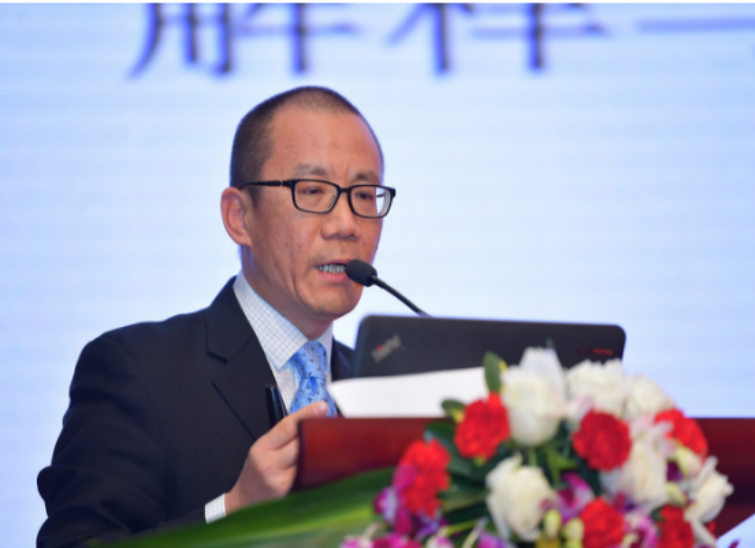
Statement by Prof. Yang Xiaoqiang
Prof. Yang Xiaoqiang's speech was entitled "Improvement of the Comprehensive Reform Policy and Value-added Tax Legislation", in which he argued that domestic and international discussions on tax law should first deal with the relationship between government, law and administration, and that the order should be tax policy first, then tax law, and finally tax collection and management. In response to the purpose of the BCM policy, he believes that the core purpose is to optimize the tax system, and all other purposes are subsidiary purposes. Talking about the relationship between BCM and international rules in China, he took the example of where services and intangible assets are taxed in BCM. In addition, he also talked about the issue of "goodwill" in the context of the relevant provisions of the BRC. The Implementation Measures of the BRC clearly stipulate that goodwill belongs to intangible assets, and the transfer of intangible assets is subject to 6% VAT, so can goodwill be subject to VAT or not? He believes that goodwill can only pay income tax. In addition, he gave his insights on VAT estimation as well as international VAT competition, VAT legislation, VAT rate, VAT administration and management.
After the keynote speeches, Mr. Zhang Fuqiang, Professor of Law School of South China University of Technology and Vice President of China Law Society's Finance and Taxation Law Research Association, and Mr. Zhang Song, Professor of School of Taxation of Jilin University of Finance and Economics, commented on the speeches.
The second part of the session, titled "Revision of Tax Administration Law and Upgrading of Tax-Related Services", was chaired by Gui Naixi, Secretary of the Party Committee of Shenzhen Registered Taxation Technician Profession and President of Shenzhen Association of Registered Taxation Technicians. Li Linjun, Vice President and Secretary General of China Association of Registered Taxation Technicians, Shi Zhengwen, Director of Finance and Taxation Law Research Center of China University of Political Science and Law and Vice President of Finance and Taxation Law Research Society of China Law Society, and Wang Hongwei, Deputy Researcher of Levy Control Science and Technology Department of Jiangsu Provincial State Taxation Bureau, delivered their keynote speeches respectively.
Vice President Li Linjun's speech was titled "'Release Management and Service' Reform and Upgrading of Tax-Related Services", and his speech was mainly divided into two aspects: first, deepening the "Release Management and Service" reform. In the spirit of the 19th National Congress, it is said that "release of administrative services" is to change government functions, deepen the simplification and decentralization of government, innovate the way of supervision, do a good job for people of new social strata, give full play to their important role in the cause of socialism with Chinese characteristics, and create a pattern of social governance of common governance and sharing. Mr. Wang Jun, Director of the State Administration of Taxation (SAT), has made three requirements for the "release and management of services": the release should be thorough and orderly, the management should be standardized and effective, and the services should be high-quality and sensible. The second is to promote the development of tax-related services. He believed that the following points should be achieved: firstly, strengthening the party building leadership of the tax accountant industry, secondly, standardizing business standards, thirdly, cultivating professionals, fourthly, promoting organizational innovation, fifthly, promoting intelligent interconnection, sixthly, implementing internationalization strategy, and seventhly, improving the credit system.
Prof. Shi Zhengwen's speech was titled "Analysis of IBFD China Taxpayer Rights Protection Observation Report and Upgrading of Tax-Related Professional Services", and he believed that the United States deserves our attention because it is leading the trend of international taxpayer rights protection, and whether or not a country attaches importance to the rights of taxpayers is a sign of whether or not it is practicing the rule of law in taxation, and it is also a sign of whether our national tax service is implementing the rule of law. Whether a country attaches importance to taxpayers' rights is the difference between whether a country is practicing the rule of law in taxation or not. The protection of taxpayers' rights is an eternal theme, but also a theme of the new era. IBFD has launched a global project called "Taxpayers' Rights Protection Observation Project" since 2015 to assess the status of taxpayers' protection in each country and publish general reports and country reports, and this year, the State Administration of Taxation (SAT) has actively organized and participated in this project. This year, the State Administration of Taxation actively organized to participate in this project. In his opinion, there are several systems that need to be established in China: one is advance declaration; the other is advance ruling. We have to pay great attention to several taxpayers' rights: first, the right to quality service; second, the right to privacy and confidentiality; third, the right of taxpayers to obtain representation; fourth, the right to relief; fifth, the right of taxpayers to enjoy a fair and just tax system, which means that the tax legislation has to be improved and reformed; sixth, the right to be informed; and seventh, the payment of only the amount of tax payable. He believes that tax planning should be done as a legitimate tax-related service to protect the rights of taxpayers.

Statement by Mr. Wang Hongwei
Mr. Wang Hongwei, deputy researcher, spoke on the topic of "Controversial Issues and Difficulties in Revision of the Tax Administration Law". He combined his own experience and believed that the revision process of the Revised Draft of the Tax Administration Law (Solicitation Draft) is generally based on the reality of China's tax administration, focusing on the shortcomings of China's tax administration and gathering the wisdom of China's tax administration to formulate a bill on China's tax administration, responding to the concerns of China's tax administration, and solving the problems of China's tax administration. The process of amending the law is summarized as based on the actual tax administration in China, focusing on the shortcomings of China's tax administration, gathering the wisdom of China's tax administration, formulating China's tax administration bill, responding to the concerns of China's tax administration, and cracking the problems of China's tax administration. As for the path to solve the problems, he believes that it includes three aspects: firstly, adhering to Chinese characteristics; secondly, learning from foreign practices; and thirdly, reflecting the characteristics of the times. Finally, he believed that the revision of the Tax Administration Law should mainly address six aspects: (1) focus on strengthening the basic principle of tax law; (2) focus on consolidating the basic system of tax source management; (3) focus on standardizing the basic procedures of tax administration; (4) focus on constructing a governance pattern of tax co-governance; (5) focus on strengthening the ability of obtaining tax-related information; and (6) focus on perfecting the protection of the rights and interests of taxpayers.
After the keynote speeches, Prof. Li Meiyun from the School of Civil, Commercial and Economic Law of China University of Political Science and Law, and Prof. Shi Zhenbao from the School of Law of Lanzhou University of Finance and Economics made comments.
The third part of the conference, titled "In-depth Analysis of Recent Tax Dispute Cases and Business Enhancement", was hosted by Zhang Xiaoping, Deputy Secretary General of China Association of Registered Taxation Technicians (CARTT). Mr. Zhang Xuerui, Deputy Director General of the Department of Policies and Regulations of the State Administration of Taxation, Mr. Wang Jiaben, Deputy Director General of the Professional Committee of Finance and Taxation Law of the All China Lawyers Association, Mr. Dong Gang, Tax Partner of King & Wood Mallesons, and Mr. Wang Qiang, Attorney of Hwuason Law Firm, delivered their speeches respectively.

Statement by Mr. Zhang Xuerui, Deputy Director
Zhang Xuerui, deputy director of the General Administration of Taxation (GAT), gave a speech entitled "Recent Trends in Tax Dispute Dynamics and Enhancement of Service Response", first of all, he introduced the recent development trend of tax dispute cases, and the average growth rate of administrative reconsideration cases in recent years was around 28%. cases, 71 cases in 2016, and 120 cases in October this year. The national administrative litigation cases are also growing rapidly, with an average growth rate of nearly 50%, especially in 2015, when the growth rate reached 81%, and last year, when the growth rate was 47%, and the General Administration had an even higher growth rate, with 2 cases in 2013, 10 cases in 2014, 45 cases in 2015, and this year, so far, it is 66 cases. In terms of the content of the cases, they are mainly focused on tax collection management and law enforcement behavior. He believes that the reason for the formation of these problems or to return to the good law and good governance, in recent years, China has increased the pace of upgrading services, the 19th National Congress to raise the good law and good governance to its rightful place, in recent years, the cleanup of regulations and policies, legality review, compliance review, fair competition review is very strong. He pointed out that as far as administrative reconsideration is concerned, it is necessary to establish a common response mechanism, and to implement timely feedback to solve the problems in the policy and law enforcement process when they are found. In addition to promote the administrative responsible person to appear in court to respond to lawsuits system, which is very important for us to promote good law and good governance to promote good governance, it is also very important for us to enhance the service.
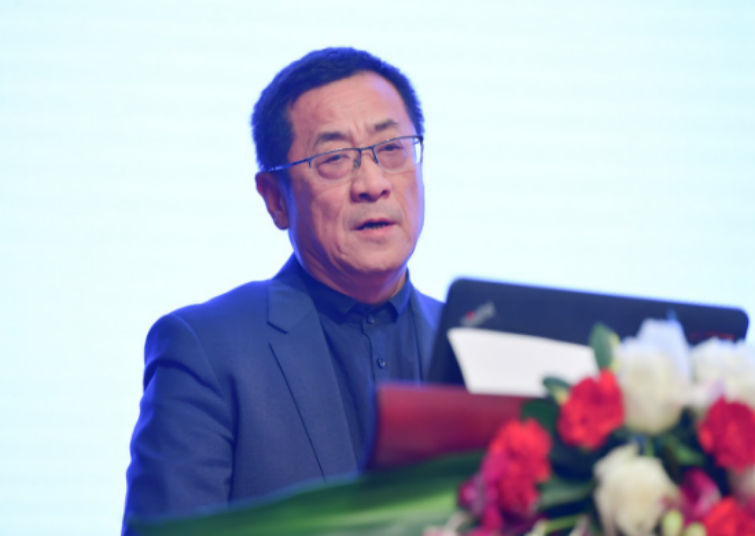
Statement by Deputy Director Wang Jiaben
Deputy Director Wang Jiaben's speech was titled "In-depth Analysis of Typical Difficult Penalty Cases of Recent Export Tax Refunds", in which he pointed out that the State Administration of Taxation (SAT) has been carrying out an activity called "Fighting Frauds and Fraudulent Cases", of which "Fighting Fraudulent Cases" is "Fraudulent Export Tax Refunds". He pointed out that recently the State Administration of Taxation has been carrying out an activity called "Fighting Fraud", in which "Fighting Fraud" is cheating export tax refund. Now suspected of violating the law for export tax refunds in three situations: the first situation is not eligible, the tax authorities to make a decision not to deal with, not to deal with two forms, one is not in line with the conditions for acceptance of export tax refunds, called not to accept or acceptance as a decision not to refund; the second is the existence of suspicion can not be ruled out, not to deal with the export tax refunds. The second situation is that the export tax refund has been processed, but found to be ineligible, resulting in the recovery of taxes, but not qualitative, not penalized, and not involved in the crime. The third situation is to take deceptive means of fraudulent export tax rebates, this behavior is subject to administrative penalties, constitutes a crime according to criminal responsibility. Wang lawyer through three cases, a detailed explanation of the first situation in the second form of export tax refunds are not dealt with, for the doubt can not be ruled out how to deal with the issue of export tax refunds for a detailed explanation. Finally, he suggested to strengthen the duty of proof of export tax rebate taxpayers, and the relative has the duty of proof to prove the existence of real goods exported in the administrative procedure. For the application of export tax rebate which is doubtful and cannot be excluded, it can be clearly stipulated that if the tax authorities cannot exclude the situation even after investigation and verification, the tax rebate will be changed from temporary not to export tax rebate to not to export tax rebate.

Statement by Mr. Dong Gang
Mr. Dong Gang's speech was titled "In-depth Analysis of Recent Typical Difficult Enterprise Income Tax Cases". He firstly analyzed the composition of China's tax revenue, and believed that the proportion of indirect tax in China is more than 50%, and the proportion of indirect tax is close to 65% or even close to 70% in the high years, and the direction of China's tax reform is to slowly increase the proportion of direct tax and reduce the proportion of indirect tax because The direction of China's tax reform is to slowly increase the proportion of direct tax and reduce the proportion of indirect tax, because indirect tax has the function of tax transfer, and the main body of tax payment is not the real taxpayer. Secondly, he summarized the common controversial issues of EIT, mainly including: firstly, the recognition of income; secondly, whether the expenses are real, reasonable and relevant; thirdly, whether the expenses incurred are reasonable and in line with the business routine expenses. Finally, he talked about his views on the issue of pre-tax deduction vouchers for EIT in combination with two practical cases, believing that "in the administration of EIT, the invoice is only one of the evidences for proving whether the cost is incurred or not, but it is not the only evidence", and at the same time, for the judgment of the commercial substance, it should be guided by the principle of tax legislation At the same time, the judgment of business substance should be guided by the principle of tax law, and many tax issues are in fact legal issues, and the more complicated and controversial the case is, the more it needs to be resolved at the legal level.
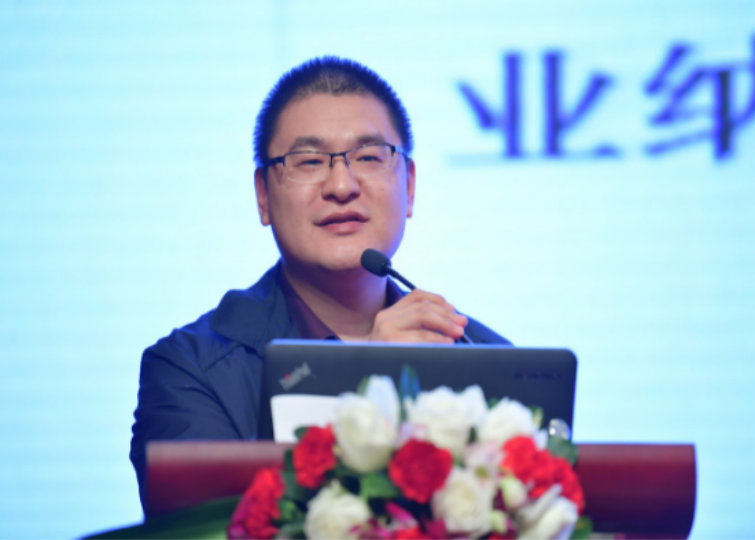
Statement by Mr. Wang Qiang
Mr. Wang Qiang's speech was titled "In-depth Analysis of Recent Typical Difficult Cases of False VAT Invoice". He shared some of the criminal prosecution cases of false VAT invoices represented and undertaken by Hwuason Lawyer Team, taking into account the risk of false VAT invoices due to "sales under a different name" in the petrochemical industry in recent years. He shared some criminal prosecution cases of such false VAT invoices undertaken by Huatax Lawyer Team. He believed that the sales under a different name committed by the petrochemical trading enterprise should not be qualified as a violation of false VAT invoices, especially should not be punished as the crime of false VAT invoices, and elaborated from the perspectives of the constituent elements of Article 205 of the Criminal Law, the purpose of the legislation, the theory of essence of the crime, and the principle of appropriateness of punishment and crime. Finally, he also suggested that the provisions of Article 205 of the Criminal Law should be revised and improved, and that the elements of purpose and harmful consequences should be clearly added to this crime, so as to ensure that the legitimate rights and interests of the defendants and the fairness of the criminal law can be properly safeguarded in the judicial practice.
After the keynote speech, the All-China Lawyers Association Finance and Taxation Law Committee member Xu Li, Shanxi Province Lawyers Association Finance and Taxation Law Committee Deputy Director Zhang Qingzheng commented.
The fourth part of the conference, entitled "Innovation of Tax-related Services in the Context of Deepening Supply Side Reform", was hosted by Lv Zhihe, Director of Taxation Law Committee of Shenzhen Lawyers Association. Mr. Yuan Hongbing, Director of Guangdong Provincial Administration of Taxation, Mr. Chen Yucuo, Professor of Taxation Cadre Training College of State Administration of Taxation, Mr. Zhang Yufeng, Partner of Asia-Pacific Pengsheng Taxation Firm, and Mr. Dong Guoyun, Director of Beijing Huazheng Taxation Firm delivered their keynote speeches respectively.
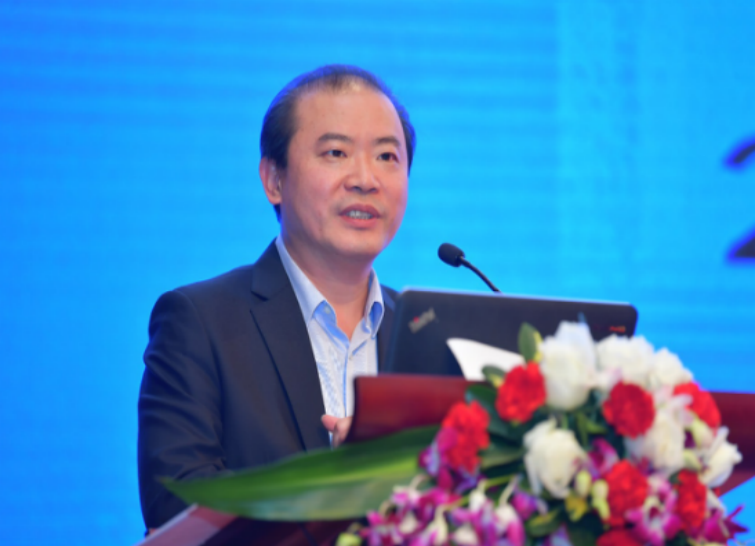
Statement by Mr. Yuan Hongbing, Director
Mr. Yuan Hongbing, Director of the Department of Taxation, gave a speech entitled "Analysis of Tax Risk Management Practice Cases of Large Enterprises", in which he firstly introduced the background of tax risk management of large enterprises, and believed that tax-related risks have been paid more and more attention at all levels, especially by large enterprises. At present, the specific working mode of tax risk management for large enterprises mainly includes data collection, risk analysis, audit response and feedback assessment; at the same time, he also looked forward to the tax risk management for large enterprises, and strengthened the cooperation between tax enterprises, and from the perspective of the SAT, he also wanted to deepen the tax service for large enterprises; finally, Mr. Yuan shared a few cases of tax risk management for large enterprises. The first one is the case of Coca-Cola's transfer of equity in a bottling enterprise in Mainland China. The second one is the case of income tax adjustment of an automobile group, and he put forward his views on reasonable business purpose. Thirdly, the case of a bank's over-scope provisioning for loan losses, in which he expressed his views on the "unauthorized provisioning expenditure refers to the provisioning expenditure for asset impairment, risk reserve and other provisions that do not comply with the regulations of the State Council's competent financial and taxation departments" of the No. 9 article.

Statement by Prof. Yuzhuo Chen
Professor Chen Yuzuo's speech was titled "Frontier of Tax Planning for M&A and Reorganization", which was divided into two parts. Firstly, he elaborated on the basic tax policies involved in M&A and reorganization. Secondly, he focused on the tax issues involved in the reorganization of Jiangnan Jiajie. The restructuring of Jiangnan JIAJIE is divided into two stages, one stage is a process called VIE dismantling before 360 borrowing; the second stage is shell listing, which includes Jiangnan JIAJIE's major asset sale, replacement and issuance of shares to buy assets, etc. He analyzed the tax issues involved.

Statement by Mr. Zhang Yufeng
Mr. Zhang Yufeng's speech topic is "Upgrading and Case Analysis of Tax-Related Services in Capital Market", he believes that, at present, small and medium-sized tax firms and even some large-scale tax firms have already gone to the dead end of the conventional agent bookkeeping and agent declaration, and they should be actively transformed and integrated, and the registered tax accountant industry has already been opened up to the certified public accountant industry and the lawyers' industry, and the "Supervision and Management Measures for Tax-Related Professional Services" issued by the State Administration of Taxation has enabled the certified public accountants and the lawyers to become the partners of tax accountants' firms, so that the outlook and the direction of the taxation industry are the transition to the consulting and the high-end planning.
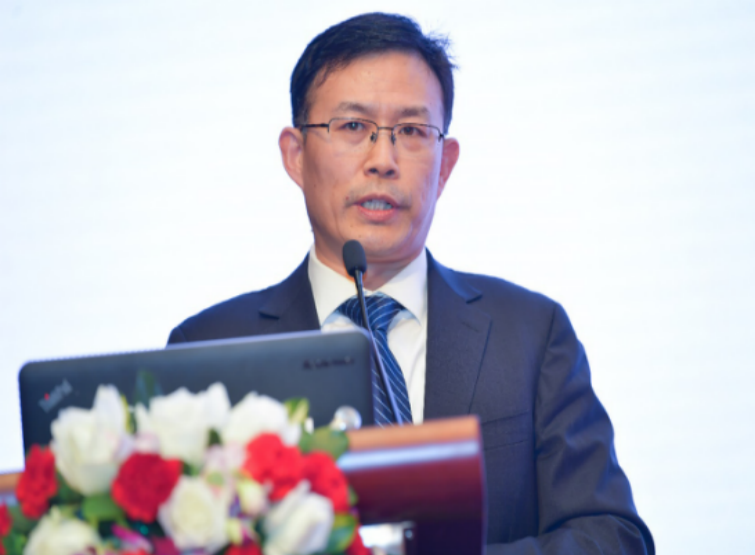
Statement by Mr. Dong Guoyun
Mr. Dong Guoyun's speech was titled "Tax Consulting Service Helps PPP Projects to be Implemented on the Ground". He pointed out that China has become the largest and most influential PPP market in the world, and that the PPP business has a long lifecycle, a large number of participating parties and complex business relationships, so tax planning can reduce the project cost of PPP projects and ultimately increase the profitability of PPP projects, which is also a very important factor to ensure the long-term development of PPP projects. It can reduce the tax burden and finally improve the profitability of PPP projects, which is a very important factor to ensure the long-term development of PPP projects in China.
After the keynote speech, Duan Xiaohong, Dean and Professor of Law School of Central South University for Nationalities, and Fan Guosheng, General Manager of Investment Banking Headquarters of Guoxin Securities, made comments.
The fifth part of the program, titled "'Belt and Road' Strategy and Innovation of International Tax-related Services", was moderated by Yuan Sengeng, a professor and part-time lawyer at the Tax Cadre Training College of the State Administration of Taxation (SAT). Mr. Wang Kensheng, Deputy Director General of International Taxation Department of the State Administration of Taxation, Mr. Ni Yongjun, Partner of Zhonglun Law Firm, and Mr. Li Xusheng, Tax Partner of Deloitte China, delivered keynote speeches respectively.
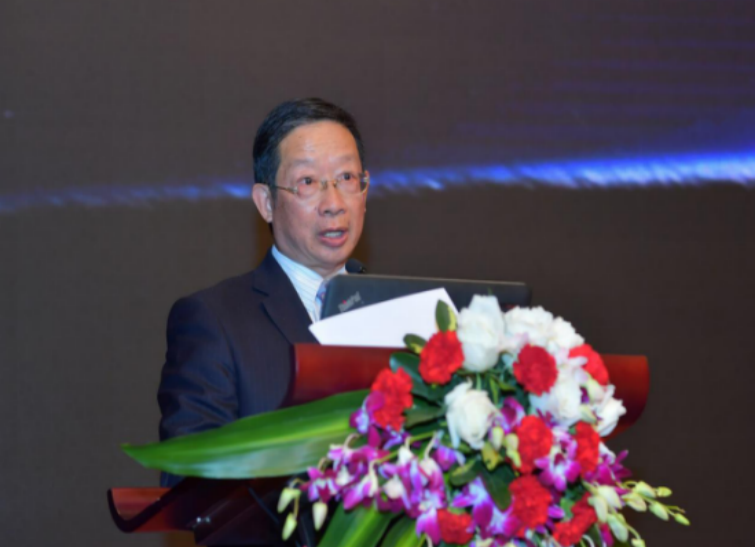
Statement by Mr. Wang Changsheng, Deputy Director
The theme of the speech of Deputy Director General Mr. Wang Zhengsheng was "Taxation Service for the Construction of 'Belt and Road'", and the content of the speech was centered on the following three aspects: Firstly, Deputy Director General Mr. Wang believed that "Belt and Road" should be viewed from multiple perspectives. First of all, Deputy Director Wang believes that "Belt and Road" should be viewed from multiple perspectives, and that the basic premise of the Belt and Road from the time it was put forward to now is that there are no conditions or hurdles to be set, and that everyone should discuss together. Regarding the current tax reform in the United States, where will the government's revenue gap come from after the tax cut? The demarcation of boundaries between the government and society, the government and intermediaries, and the government and enterprises is a very important issue; secondly, the G20 tax reform, the General Administration of Taxation (GATS) specifically set up the G20 Leading Group in 2015, and our country is actively participating in the FATCA and CRS systems. Thirdly, tax service "Belt and Road" construction, he believes that tax cooperation should be strengthened to strengthen international tax avoidance, against tax evasion and other areas of cooperation, our country is also contributing money to help developing countries.
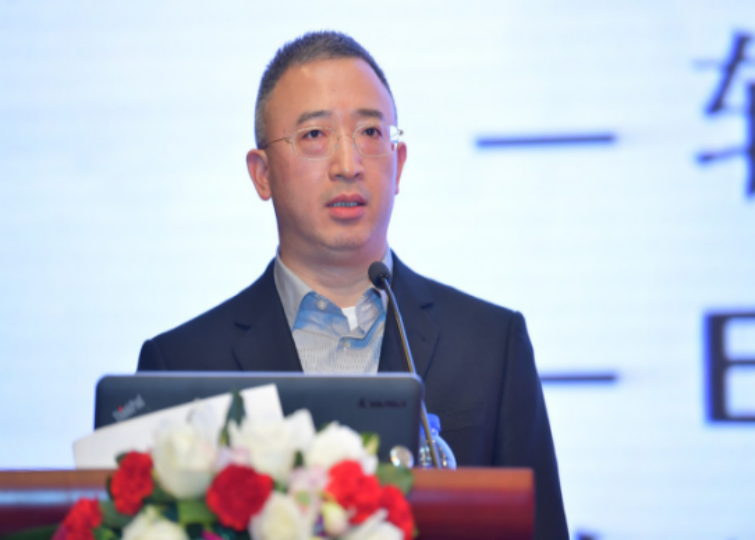
Statement by Mr. Ni Yongjun
Mr. Ni Yongjun introduced the tax administration issues and related practical skills of non-resident enterprises with the topic of "The latest development and practical cases of tax administration for non-resident enterprises". He firstly introduced the relevant regulations, and then analyzed the tax risk points of enterprises' concern. He believed that the tax risk points of non-resident enterprises' most concern mainly include the following six items: 1) permanent establishment, which is the focus of tax enforcement in foreign countries, especially in the developed countries, and is also a gold mine, and once it constitutes a PE, the amount of tax that he can adjust will be very large; 2) withholding at source; 3) indirect equity transfer, which may be the main reason for the tax administration of non-resident enterprises; 4) indirect equity transfer, which may be the main reason for the tax administration of non-resident enterprises, and also the reason for the tax administration of non-resident enterprises. Indirect equity transfer may be another gold mine in the field of anti-avoidance in addition to transfer pricing by Chinese tax authorities; 4. Identification of domestic resident enterprises of foreign enterprises, with the CRS information reported to the tax bureau, if the tax bureau can see or deduce the structure behind; 5. Controlled foreign companies; 6. Anti-avoidance investigations, including abuse of tax treaties, indirect equity transfer, transfer pricing. Finally, he also analyzed several practical cases.
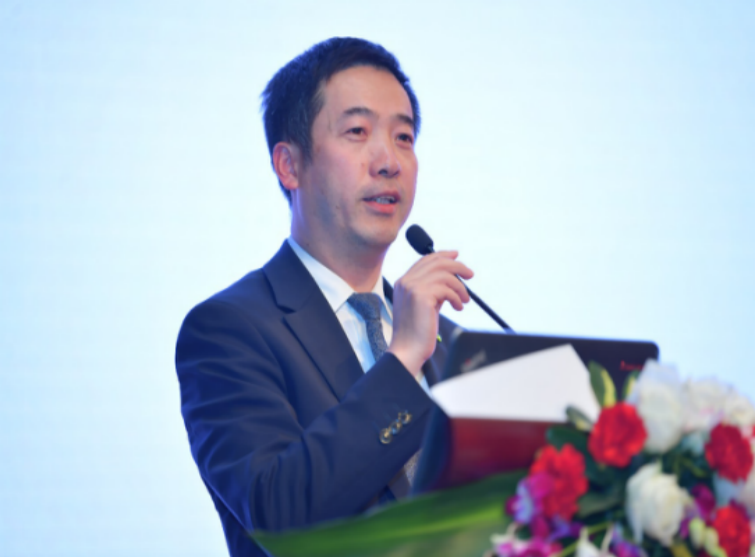
Statement by Mr. Li Xusheng
Mr. Li Xusheng's speech was titled "BEPS Action Plan and the Latest Progress of International Cooperation in Tax Administration", and he firstly introduced the reasons for the emergence of BEPS and its development prospect, and believed that in the past, we have always been talking about the avoidance of double taxation, but in fact, what we see now is a lot of double nontaxation, and the emergence of this problem has something to do with the tax system. This problem is related to the tax system, including the difference of tax system, the conflict of tax system among countries, including transfer pricing, taxing right, and the lack of information communication and coordination mechanism among countries. Secondly, he also analyzed the BEPS action plan and international cooperation in tax administration, focusing on digital economy, multilateral tools, and transparency of tax system. Finally, he analyzed the impact of BEPS on Chinese enterprises. He believes that the transparency of information disclosure has increased, the cost of enterprises has increased, but the risk will also increase, especially the new rules of transfer pricing for enterprises to bring new risks we must pay attention to, must do a good job of country reports and transfer pricing reports.
After the keynote speeches, Mr. Xu Yan, Associate Professor of the School of Law of The Chinese University of Hong Kong, and Mr. Chen Xiaoan, Professor and Head of the Department of Taxation of Guangdong University of Finance and Economics, made comments.
After the five speech topics, Liang Wenyong, Deputy Director of the Legislative Affairs Committee of the Central Committee of the Democratic Alliance for the Betterment and Progress of Hong Kong (DAB), Executive Director of the China Institute of Fiscal and Taxation Rule of Law Strategies of Changzhou University, and Associate Dean of the Shiliang Law School, made a general comment.
The closing ceremony of this forum was held at 18:30. Dr. Liu Tianyong, Deputy Director and Secretary General of the Professional Committee on Fiscal and Tax Law of the National Lawyers Association and Director of Hwuason Law Firm, acted as the moderator. Ms. Quan Fanglou, Vice President of China Association of Registered Tax Practitioners, and Mr. Shi Zhengwen, Director of the Research Center of Finance and Taxation Law of China University of Political Science and Law, delivered speeches, and an award ceremony for the China Tax Law Forum Essay Competition was held.

Speech by Mr. Kwon Fong Lo, Vice President
Mr. Quan Fanglou, vice president of the forum, pointed out in his speech that this forum is the first forum held after the opening of the new era of the 19th National Congress, and the social attention and participation have reached a new height, and all the participants have benefited a lot, enjoying a high-quality tax law meal. As an important activity of the 2017 China Tax Law Forum, this year's paper selection activity has received active attention and support from tax lawyers, tax accountants, tax cadres, experts, scholars, certified public accountants, corporate finance and other industry colleagues and graduate students of tax law across the country since the release of the announcement, and the organizing committee has received a total of more than 220 papers, which, after the comments of the experts, resulted in a total of 4 first prizes, 8 second prizes, and 13 third prizes. After the experts' comments, there were 4 first prizes, 8 second prizes and 13 third prizes. Prof. Shi Zhengwen said in his speech that this year's Tax Law Forum was very informative and everyone was tired and happy, and that the Tax Law Forum, as an important form of cooperation between the National Lawyers Association of China and the China Taxation Association, had played a great role in promoting the development of tax-related services, and he especially thanked the specific organizers and conference team members of the Forum, which was considered to require a kind of bosom and a sense of responsibility!
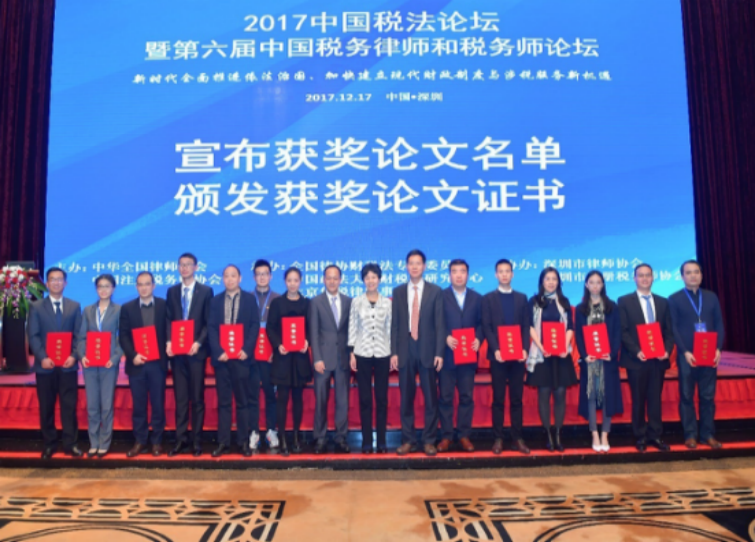
Tax Law Essay Contest Award Ceremony
Finally, Liu Tianyong, the host of the closing ceremony and director of Hwuason Law Firm, pointed out that more than six hundred people attended the forum on site and more than 20,000 people watched the forum online on the live broadcast platform. The successful organization of the forum will undoubtedly play a positive role in broadening the horizons and ideas of professionals and enhancing the level of tax-related services, and will also play a positive role in promoting cross-border cooperation among tax lawyers and tax accountants. As the organizer of this forum, Hwuason Law Firm, will, as always, cooperate with tax lawyers and lawyers around the world in a friendly manner. At 19:00 p.m., Director Liu Tianyong announced the successful closing of the Tax Law Forum.
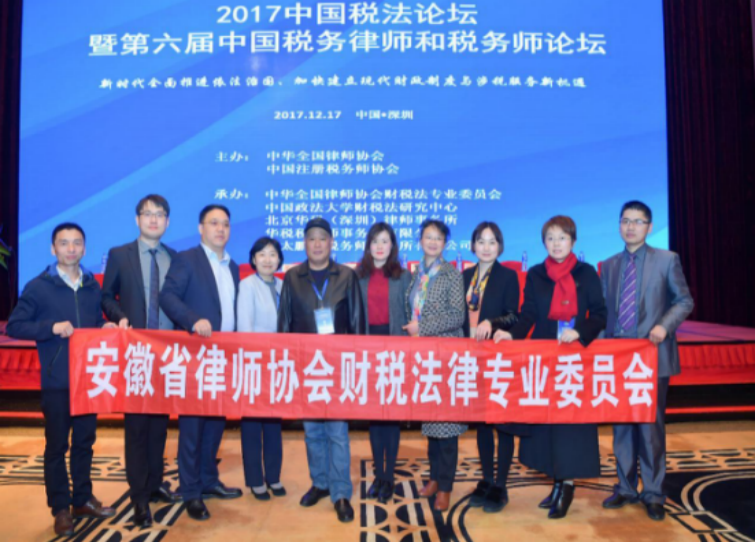
Anhui Lawyer Association's Tax Law Professional Members Participated in the Forum Collectively
"The China Tax Law Forum and China Tax Lawyers and Tax Accountants Forum have been successfully held for six consecutive years in 2010, 2011, 2013, 2014, 2015 and 2016, and this year's Tax Law Forum is held at the important historical point when the 19th CPC National Congress was held soon and socialism with Chinese characteristics has entered a new era. At this point in history, the central government has made a series of new assertions, tasks and initiatives on deepening the reform of the tax system and improving the local tax system, including the legislation on value-added tax (VAT), the reform and legal revision of the combination of comprehensive and categorical personal income tax, the reform and legislation on real estate tax, the reform and legislation on key entity taxes such as tariffs, resource tax and consumption tax, as well as the reform and legislation of the law on tax administration, which are undergoing rapid development and in-depth adjustments. With the theme of "Comprehensively Promoting the Rule of Law, Accelerating the Establishment of Modern Fiscal System and New Opportunities for Tax-related Services in the New Era", the forum will focus on the major theoretical and practical issues such as "Accelerating the Establishment of Modern Fiscal System in the New Era". "The participants, including tax officials, tax law scholars, tax lawyers, tax accountants and enterprise financial personnel, conducted extensive and in-depth discussions on major theoretical and practical issues, highlighting the organic combination of frontier, theory, practice, professionalism and openness, and the degree of social attention and participation reached an unprecedented level. The successful convening of this forum will play a more positive role in the in-depth implementation of the spirit of the 19th CPC National Congress, the full implementation of the principle of tax law, and the continued leading of the development, business innovation and strategic cooperation of the tax-related service industry, including tax lawyers, tax accountants, etc.; in the future, the forum will continue to explore the major cutting-edge topics in the construction of the rule of law in China's taxation in the new era, and to help the reform of the national taxation system and the construction of the rule of law, and better serve the reform of national taxation system and the construction of the rule of law. In the future, the forum will continue to explore the major frontier issues in the construction of the rule of law in China in the new era, help the reform of the national fiscal and taxation system and the construction of the rule of law in the country, and better serve the country's strategy of comprehensively deepening the reform, comprehensively ruling the country according to the law and comprehensively opening up!





